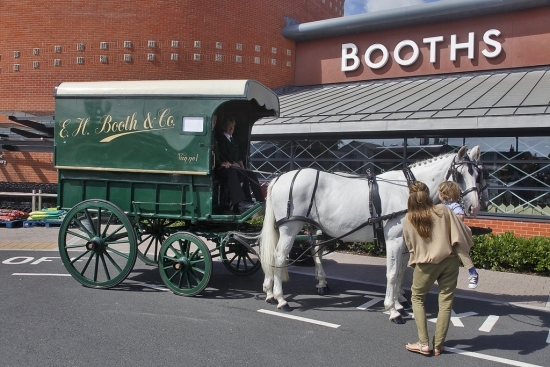Christmas tends to be a hugely successful time of year for both food and non-food retailers, with families preparing for the big day stocking up on gifts, food and drinks in order to make the most of the festive season. However, the news from some of the UK’s largest supermarkets such as Tesco and Sainsbury’s has been relatively subdued this year.

At first glance, this would indicate that consumers remain cautious about spending after several years of recession – a logical conclusion given the pace of wage increases is still far outstripped by the rate of inflation. However, another possible explanation for the subdued Christmas trading period experienced by the “big four” supermarkets comes in the form of the performances of smaller supermarket brands at either end of the market.
In the run up to Christmas, it was no secret that budget supermarkets such as Aldi and Lidl were managing to outperform their more established rivals in terms of sales and footfall. Similarly, upmarket chains like Waitrose enjoyed a lift as Christmas Day approached.
This line of thought is backed up by the performance of family-owned supermarket brand Booths, which is often referred to as the Waitrose of the north. The retailer posted a 6 per cent boost in like for like sales in the 21 days to the 4th of January, demonstrating that the festive season can indeed still be profitable for retailers managing to identify customer requirements.
Booths currently operates 29 stores across the North West and enjoyed the busiest day in its 166 year history on the 23rd of December. According to chairman Edwin Booth, many of the brand’s customers embraced the idea of an alternative Christmas dinner, with venison, Herdwick mutton and three bird roasts all proving popular this year.
Mr Booth believes that the secret of his business’ success is the emphasis placed upon quality.
“Customers care about quality and provenance at Christmas – they want to know they are buying the best, they want something exceptional to serve made by someone who cares about the food they produce.
“Sales of premium turkeys and geese were robust.
“People come to Booths for the best, they trust our quality and our commitment to find the very best suppliers that are producing exceptional food,” he told the Telegraph.
Another aspect which must be taken into the account, when assessing Christmas supermarket sales, is a growing consumer reliance on online ordering. Although Tesco, Asda and Sainsbury’s all have delivery and collection options available through online ordering, Morrisons is yet to introduce this service and as such could have been heavily hindered when trying to lift sales.
Mr Booth points out that Booths was careful to prepare in this way for the seasonal rush, saying; “We made it easier to order online and collect in advance of Christmas Day.”
Unfortunately, with the big four steadily losing market share to rivals at either end of the market, the festive season’s shaky results could prove to be simply the tip of the iceberg for the UK’s largest supermarkets in 2014.
Have you chosen to switch supermarket allegiance over the past few years and, if so, why?
Previous Post
Norwegian Wealth Fund buys Prologis Stake